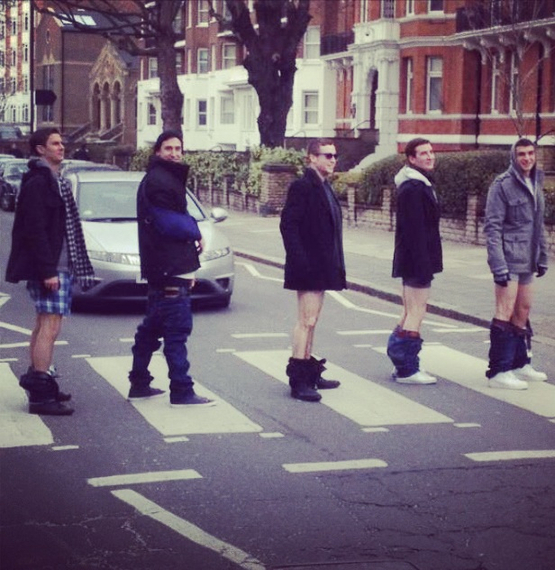My generation inherited the digital era. For better or for worse, it found us. Immersed in user-generated content since day one, it became my generation's instinct to create, and perhaps more exceptionally, to share our creations with the world. We rapped to the Lion King, invented the cat meme and edited our own encyclopedias.
But, alas, current copyright law opposes our collaborative instinct. It chokes to death our creative spirit. It challenges fundamentally what and who we are.
Pulling incessantly in opposite directions, copyright law and my generation have agreed to a stalemate. The law proscribes the very behavior that defines us. It prohibits precisely what it means to be and feel young.
Inevitably, we ignore or even abandon the law altogether. We pirate the music that we love and become criminals in the process. Condemned to a destiny of piracy, we lurk thirstily in the sea of cyberspace.
But are we to blame for our piracy? Are we to blame when, we intersected, as if by fate, with copyright law that denied our collective identity? Are we to blame when, with no strategic way to bypass it, we had few options but to break the law?
While the answers to these questions are elusive, our problems remain solvable. Our solutions, however, require compromise. My generation must now assume responsibility for its actions. We need to work hand in hand with lawmakers to strike a balance in which copyright law protects existing intellectual property, but doesn't stifle the creation of future intangible assets.
We need artists working with us. We need them to make their work more available and recognize the artistic value in doing so. Those artists audacious enough to embrace piracy culture will likely expand their outreach and impact larger audiences of consumers and co-creators alike.
Counterintuitive indeed, artists are already cashing in on free music distribution. A new generation of rappers is building revenue streams around the creation of free digital content. J. Cole, Wale and Mac Miller, to name a few, are well known for attracting fan bases with complementary mixtapes and eventually converting their fans into paying customers.
Most recently, rap newcomer Lil Dicky made headlines when he released a barrage of 32 independently-produced songs, entirely free of charge. In the process, he harnessed the support of a YouTube army. He's now selling out concerts with Schoolboy Q and Ludacris.
For Generation Y, these developments have profound implications. Our approach to reframing copyright law within the context of the ever-changing digital era must be predicated on the principles of creativity and collaboration. So long as Generation Y accepts that artists deserve adequate compensation for their labor, and the artists themselves uncage their creativity, we will together push forward the frontier of innovation. Together, we will determine the future of intellectual property in this country.

